Whether you’re making the transition to a new software provider or getting started with church management software (ChMS) for the first time, it’s easy to get caught up in the excitement and rush to launch. You’ve got ministries to manage, events to plan, and not much time. But the implementation of your new software sets the stage for future success, so it’s important to start off right.
Proper implementation isn’t easy, and it has several costs associated with it:
Costs
1. Financial expenses
 On top of the basic subscription cost for the software itself, you’ll likely pay a one-time startup fee. You might also encounter additional costs for hardware to meet minimum operating requirements. The staff members who are overseeing implementation are on the clock, and some projects may result in unexpected costs.
On top of the basic subscription cost for the software itself, you’ll likely pay a one-time startup fee. You might also encounter additional costs for hardware to meet minimum operating requirements. The staff members who are overseeing implementation are on the clock, and some projects may result in unexpected costs.
Outside of any basic training that is included with your purchase, you’ll probably invest in some additional training or coaching to help the process. Even if you choose an open source software, there are plenty of financial expenses to consider.
2. Manpower
Not only will your staff be involved in the implementation and regular use of your software, but you’ll also probably recruit some volunteers. Effectively using your software will require a team of people dedicated to the project—especially an individual or group that will champion the cause.
3. Time
It’s going to take time to learn any new software and adjust the way you do things each day. Everyone from senior staff to part time volunteers will invest hours in the beginning. And it’s not an overnight process—although you can become comfortable with everyday functions in a relatively short period of time, you will continue to learn for a while after your initial launch.
Looking at the work and cost ahead may be overwhelming, but the value you gain from a smooth ChMS implementation is well worth it:
Values
1. Financial Value
While the amount of resources you initially dedicate may seem costly, you’re receiving a great value for your church. You can simplify and expedite a lot of the tasks you do each week or each day. When you invest in proper implementation, you’re getting more than just software—you’re walking away with a ministry tool that will grow with your church for years to come. Although you may spend a little extra on implementation coaching, you’re guaranteeing that you get your money’s worth by taking advantage of all the features available to you.
You may have the sincerest intentions to learn more after you get the basics down, but most churches only get busier and never find the full value of their ChMS. So learn what’s available to you from the beginning. Does your provider offer a complimentary mobile app along with the ChMS? Can you integrate your database with your website so people can log into a member portal and give, register for events, or find a small group?
2. Community Value
When you implement your ChMS well, you’re ideally going to provide training and education for all the people that need it—including volunteers who will be doing data entry and members who will take advantage of that portal or mobile app to find a small group or service opportunity. Proper ChMS implementation isn’t just about preparing your secretary to enter data; it’s about making connection and discipleship easier for your church.
3. Ministry Value
Before you determine how you’ll utilize your ChMS, smart implementation dictates that you’ll first consider your individual church and the smaller ministries within it. Walk through all of the tasks you want to accomplish. Consider the processes and workflows you have in place to meet your goals. These will be different for each church and ministry—and that’s why reviewing them with an implementation coach that has gone through this process before can be valuable. Reevaluate the way you do things to see if there’s a smarter way with your new software.
4. Time Value
You and your staff may invest a significant amount of time implementing your new ChMS. But it truly is an investment—with great returns in the future. If you take advantage of quality training and coaching now, you’ll be confident and informed moving forward. You won’t need to spend hours down the road sitting on support calls because you didn’t do it right the first time.
Keep these tips in mind when developing the plan for your ChMS implementation:
- Consider investing in training or implementation coaching to make sure you do things right from the start. You’ll probably encounter questions 3-4 weeks in, and having an expert at your disposable will be invaluable.
- Get all the necessary players involved right away. This will probably include most of your staff and volunteers.
- Get your money’s worth from the beginning! Use all the features you’re paying for or getting for free—don’t let good technology go to waste.
- Allow for delays, additional costs, and some difficulties with people adopting the new system. There will probably be some hiccups along the way no matter how much you prepare.
- Get your staff on the same page by helping them realize the purpose of the technology—show them the benefits to the church as a whole and to them personally.
- Use the tools you’re asking your church community to use. Want them to log into your website portal and update their information? Demonstrate how easy it is to get started from the pulpit.




Many churches, when implementing a new ChMS, choose to discount the purchase price by eliminating or short cutting an investment in training or implementation help. It’s often seem as an optional, discretionary expense. They need to evaluate how much time and effort they have available (especially in this era of understaffed churches) to learn a system, launch congregational facing functionality (and get it right the first time, because there is no second chance), and work new technology into their current processes. A great implementation team from the ChMS provider can actually save the money in the long run by helping them get the system up and running faster and insuring success with any part of the solution that’s launched to the congregation.
That’s true, Abigail. But hopefully that’s something churches are looking at as they choose a provider, well before the implementation phase.
Don’t forget to see if your management software and online giving work together wether it’s being able to export or totally intergrate. https://www.continuetogive.com/index.php
*whether*